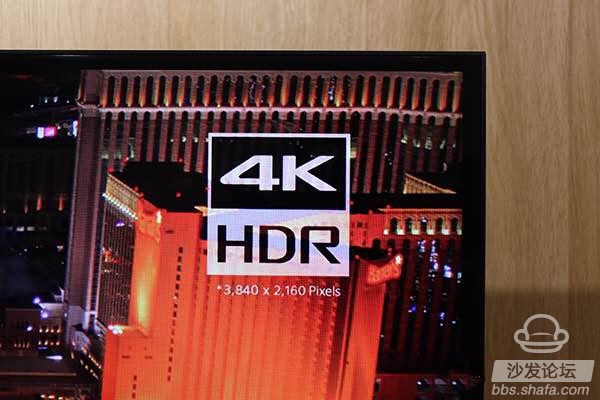
Recently, HDTV, the new TV technology, has really begun to gain popularity as 2016 new TV products from Sony, Samsung and other vendors are launched globally. Looking back at the 2016 CES exhibition held in January of the beginning of the year, despite the competition of black technology such as 8K, OLED, and oversize, HDR has also become the most concerned new technology in TV products and has become the focus of competition among major manufacturers. So what exactly is HDR technology that TV manufacturers compete for? In this issue of "I Want to Ask for Digital," Tencent Home Appliances will provide you with relevant answers.
What is HDR in TV?
HDR is a high dynamic range, and it is not something new. We have widely applied it to high-end cameras and some smartphones to shoot higher-quality pictures. In HDR mode, the shooting device will quickly take multiple photos with different exposure values ​​and then combine them into one, which will make the contrast of the photos more even and avoid too bright or too dark.
HDR video is shot in an extended range, capturing darker and brighter details during the shooting process. It does not combine the two, but it further separates it to bring a wider color range.
It is reported that HDR photos/videos are closer to what the human eye can see, which also makes the picture more realistic. The HDR technology on the TV can greatly expand the contrast and color at the same time. The bright part of the picture will be brighter, the dark part will also be sufficiently detailed to make it look more "deep"; the color extension will make the red, green and blue and all colors between them look brighter and pure. . In addition, the wide color gamut (WCG) will come along with HDR to further expand the color that TV screens can present.
HDR and 4K technology is better or worse?
In fact, HDR is not in contradiction with 4K technology. HDR is more inclined to the technical application layer, and 4K resolution is the physical layer. Both of them generally exist at the same time. If you have to make a distinction, HDR will undoubtedly have a greater impact on the picture quality of TV because the two most important criteria for measuring the quality of a TV are contrast and color.
In the actual viewing time, if the two TVs are compared together, the former has better contrast and more accurate colors, and the latter only has a higher resolution, then almost every spectator will think that the former's picture quality is better. Although the resolution is lower, the higher contrast and color accuracy make the picture look more natural and realistic. In other words, a perfectly contrasting and colorful 1080p resolution TV is definitely more popular than a typical 4K battery with contrast and color performance.
Where is the current bottleneck of HDR?
The HDR system consists of two parts: television and content sources. To enjoy the HDR display, you need to have an HDR TV; but because HDR TVs need to be able to generate more light in specific areas of the image, resulting in higher contrast and color display, they will To increase the brightness and color display of the TV itself, these are cost-conscious.
Similarly, HDR is also faced with a lack of content. HDR TVs need to have HDR content to highlight their own value, while the latter is still developing slowly. The 4K resolution video resources are still not much after a period of development, and it will take time for HDR content to be enriched. At present, only Amazon's streaming service and Netflix have some HDR resources, and the number is very limited. In addition, although there are other HDR alliances or organizations that announce their plans for HDR content, there is no more substantial content for the time being.
summary
Although HDR TVs are currently faced with high cost and lack of content, the pursuit of picture quality may be the original intention of TV development rather than the update of intelligent interactive features. After all, TV is used more often. At the same time, HDR is even more obvious than other technologies such as 4K to improve the picture quality of TVs, and has more extensive compatibility. The pursuit of this technology by the major manufacturers is a matter of course.